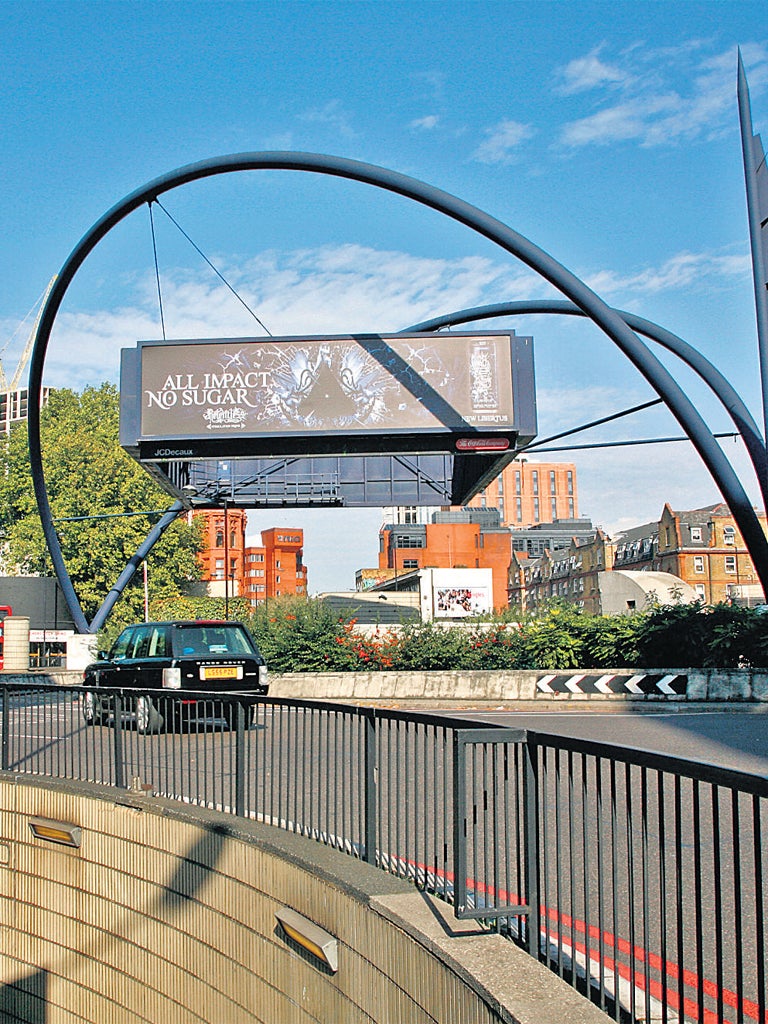The hi-tech business brains of Silicon Roundabout

Launched in November 2010 with generous tax breaks and start-up grants, Tech City, a five-square-mile slice of east London, is the UK's biggest high-technology hub. According to the Department for Business, Innovation and Skills, Tech City has doubled the number of technology businesses in this run-down area of London and created more than five hundred new jobs.
The creative buzz has attracted Google and Microsoft to set up business incubator units near Tech City's epicentre, the Old Street roundabout, appropriately dubbed "silicon roundabout".
Now, Goldsmiths University of London is re-branding itself to offer professional development and management education to aspiring silicon roundabout entrepreneurs. The university is opening an Institute of Management Studies in the autumn offering four specialist MSc courses in leadership and talent management, management of innovation, digital entrepreneurship and occupational psychology.
"We're not looking to attract graduates who want to be accountants or engineers; we're looking instead for people who want to be good leaders in areas like design and the digital media," says Frank Bond, director of IMS.
Bond points to role models like Kevin Ayres, former MD of LinkedIn UK and Ireland, who has recently been appointed Tech City talent champion and has launched a mentoring programme to put start-up businesses in touch with people who know the issues involved in raising venture capital and turning a bright idea into a product that makes money.
The first three Masters degrees are brand new and draw together academics from Goldsmith's Institute for Creative and Cultural Entrepreneurship. The MSc in occupational psychology has been running for the past 15 years and is accredited by the British Psychological Society. Bond, a former head of Goldsmiths' psychology department, says he aims to recruit up to 30 students for each Masters programme.
So what's his mission? "In recent years, I've seen most of Goldsmiths' departments, including arts and media, incorporate management into their curriculum. The IMS focus will be on teaching leadership, and about the techniques of attracting, retaining and developing individuals," he says.
Occupational psychology, the science behind HR, organisational development and change management, plays an important role across disciplines. "One reason we decided to launch our new institute was that we could get together people from computing design, digital new media and the Institute for Creative and Cultural Entrepreneurship," says Bond. The new institute will be housed in part of Goldsmith's new £8.2m arts complex, where it will be close neighbours with the visual arts department and new media laboratories.
Business links will play a key role in attracting students. Bond has good connections with the BBC's digital new media people. He is exploring closer links with Tech City and has built a special relationship with the worldwide HR consultancy Kenexa.
Based in London and Minneapolis, Kenexa's High Performance Institute regards itself as a strategic partner of Goldsmiths new IMS. Under a research collaboration Kenexa has invited Goldsmiths Masters students to work as interns in its institute. "Part of the rationale behind the IMS is the very high-level work Frank and the team at Goldsmiths have been commissioned to do for us," says Jack Wiley, president of the Kenexa High Performance Institute.
So what do students think of Goldsmiths' Institute of Management Studies? "The jobs market is pretty tough but closer relations with business will help identify opportunities for internships and work experience," says Alex Birch, a Goldsmiths MSc alumnus and associate director of the workplace research consultancy Ipsos Mori.
After graduating in 2005, Birch found his MSc was respected by employers and opened many doors into occupational psychology and HR. "My MSc provided a good introduction to the different areas of occupational psychology, such as ergonomics, employee assessment and selection. I specialised in occupational health and well-being and did my dissertation on the personal factors that shape people's experience of workplace stress," he says.
If all goes well, Goldsmiths will follow up its Masters courses with part-time and even distance-learning options.
Tech City may only be half an hour away by train and underground – but with a number of spin-off arts businesses beginning to bring regeneration to its native New Cross, Goldsmiths is in an ideal position to offer its expertise to the denizens of Tech City.
Join our commenting forum
Join thought-provoking conversations, follow other Independent readers and see their replies
Comments
Bookmark popover
Removed from bookmarks